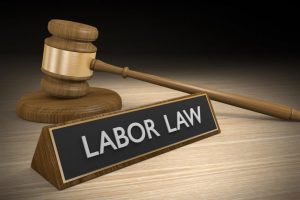 On August 27, 2015, the National Labor Relations Board (“NLRB”) published its decision in the Browning-Ferris Industries of California, Inc. case (“BFI Case”). In that case, Browning-Ferris Industries of California, Inc. (“BFI”) retained the services of Leadpoint Business Services (“LBS”) to provide staff to one of BFI’s recycling facilities. The contract between BFI and LBS recognized, and the parties understood, that the personnel staffed by LBS were the employees of LBS. Nevertheless, given the fact that the contract granted BFI with some control over the employees of LBS, the NLRB concluded that BFI was a joint-employer of LBS thereby obligating BFI to comply with federal labor laws.
On August 27, 2015, the National Labor Relations Board (“NLRB”) published its decision in the Browning-Ferris Industries of California, Inc. case (“BFI Case”). In that case, Browning-Ferris Industries of California, Inc. (“BFI”) retained the services of Leadpoint Business Services (“LBS”) to provide staff to one of BFI’s recycling facilities. The contract between BFI and LBS recognized, and the parties understood, that the personnel staffed by LBS were the employees of LBS. Nevertheless, given the fact that the contract granted BFI with some control over the employees of LBS, the NLRB concluded that BFI was a joint-employer of LBS thereby obligating BFI to comply with federal labor laws.
In adopting a new legal standard for determining joint-employer status, the NLRB emphasized that such a determination should not be based solely on actual control over the employees of another, but the “existence, extent, and object of the putative joint employer’s control.” (Browning-Ferris Industries of California, Inc. (2015) 2015 NLRB No. 672, *12 (Emphasis added).) Otherwise, employers would be able to insulate themselves from their responsibility to comply with federal labor laws. (Id. at p. *21) Accordingly, as long as a company retains (e.g., through the execution of a contract) the authority to control the employees of another, said company shall be given joint employer status. (Id. at p. *2.) This is true even if control is exercised indirectly (e.g., through an intermediary). (Id.)
Many associations retain a community management firm for the purpose of executing the duties of the association. These community management firms in turn employ community managers and support staff to manage these associations. While historically recognized as the employee of the community management firm (and an independent contractor of the association), the BFI Case raises some questions with respect to the nature of the relationship between the employees of a community management firm and the association. Accordingly, associations must be cognizant that a Court may find that it is a joint employer of the community manager (and support staff), notwithstanding the fact that it exercises no direct and immediate control over said manager.
Similarly, associations and management companies must take care when hiring maintenance and service providers for the community. When managers, committee members, or board members are conducting job walks with a contractor’s employee, reviewing specifications, or receiving invoices, the management company and the association may become joint employers. In Heiman v. Worker’s Compensation Appeals Board, Cal: Court of Appeal, 2nd Appellate Dist., 3rd Div. 2007 (“Heiman”), a community association manager hired an unlicensed and uninsured contractor on behalf of the association to install rain gutters on the condominium buildings. An employee of the contractor was seriously injured on the first day of the project and sued the contractor, management company, and association for workers’ compensation. The Court held that the contractor, the association, and the management company were all joint employers because the contractor hired the injured employee, and the management company, as agent of the association, hired the contractor. The BFI Case seems to affirm this decision.
 |
In order to insulate the association from a possible finding of joint-employer status, the association should ensure that its contract with independent contractors, requires all proper licenses and insurance, adequately sets forth the desired results, and sets forth the level of care and skill to be used in accomplishing the desired results. (See Id. at p. 12 (“mere ‘service under an agreement to accomplish results or to use care and skill in accomplishing results’ is not evidence of an employment, or joint-employment relationship”).) The agreement should also include a provision that requires the contractor to indemnify and hold the association harmless in the event a labor dispute arises. |
Blog post authored by TLG attorney, Matthew T. Plaxton.
 California is experiencing the worst drought in over a century. As a result, the California Legislature has enacted a number of laws aimed at water conservation. Existing law requires the Department of Water Resources and the State Water Resources Control Board to take appropriate actions to prevent unreasonable water use. To further the goal of preventing unreasonable water use, Governor Jerry Brown signed into law new legislation prohibiting excessive water use by residential customers during a drought (SB 814).
California is experiencing the worst drought in over a century. As a result, the California Legislature has enacted a number of laws aimed at water conservation. Existing law requires the Department of Water Resources and the State Water Resources Control Board to take appropriate actions to prevent unreasonable water use. To further the goal of preventing unreasonable water use, Governor Jerry Brown signed into law new legislation prohibiting excessive water use by residential customers during a drought (SB 814). HOA Lawyer Blog
HOA Lawyer Blog



 The California Air Resources Board (“ARB”) passed a regulation (“Regulation”) that requires diesel trucks and buses that operate in California to be upgraded to reduce emissions. The Regulation has a direct impact on HOAs and requires them to take steps to verify that certain vehicles they hire are properly certified with the State. The Regulation requires lighter and older heavier trucks to be replaced starting January 1, 2015. By January 1, 2023, nearly all trucks and buses will need to have 2010 model year engines or equivalent.
The California Air Resources Board (“ARB”) passed a regulation (“Regulation”) that requires diesel trucks and buses that operate in California to be upgraded to reduce emissions. The Regulation has a direct impact on HOAs and requires them to take steps to verify that certain vehicles they hire are properly certified with the State. The Regulation requires lighter and older heavier trucks to be replaced starting January 1, 2015. By January 1, 2023, nearly all trucks and buses will need to have 2010 model year engines or equivalent. We previously
We previously 
 On August 27, 2015, the National Labor Relations Board (“NLRB”) published its decision in the
On August 27, 2015, the National Labor Relations Board (“NLRB”) published its decision in the 

 One problem that arises in the context of enforcing homeowners association (“HOA”) governing documents pertains to how consistently certain use restrictions in the governing documents are enforced over time. For example, if a HOA has historically failed to enforce a particular restriction, a decision to enforce that restriction against a particular owner may subject the HOA to claims of “selective enforcement” and/or that the HOA’s enforcements efforts are being exercised in an arbitrary and capricious fashion. These claims not only hinder the cost-efficient resolution of disputes, but could significantly undermine the HOA’s enforcement authority.
One problem that arises in the context of enforcing homeowners association (“HOA”) governing documents pertains to how consistently certain use restrictions in the governing documents are enforced over time. For example, if a HOA has historically failed to enforce a particular restriction, a decision to enforce that restriction against a particular owner may subject the HOA to claims of “selective enforcement” and/or that the HOA’s enforcements efforts are being exercised in an arbitrary and capricious fashion. These claims not only hinder the cost-efficient resolution of disputes, but could significantly undermine the HOA’s enforcement authority. *New Legislation
*New Legislation